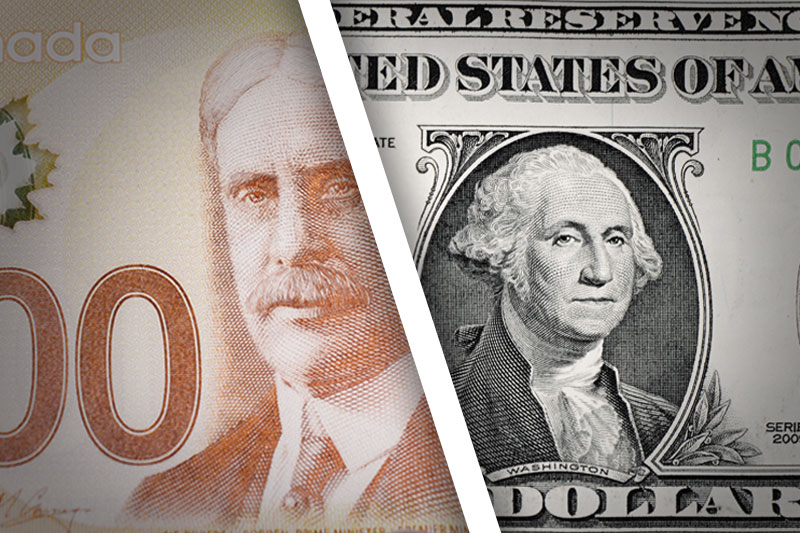Investing.com - The U.S. dollar was hovering near a one-week low against its Canadian counterpart on Friday, after the release of strong U.S. employment data, as a similarly positive Canadian jobs report supported demand for the loonie.
USD/CAD hit 1.0234 during early U.S. trade, the pair's lowest since February 28; the pair subsequently consolidated at 1.0248, declining 0.48%.
The pair was likely to find support at 1.0217, the low of February 28 and resistance at 1.0315, the session high.
The dollar found support after the U.S. Department of Labor Statistics said the economy added 236,000 jobs in February, far more than the expected 160,000 increase, after a 119,000 rise the previous month.
The U.S. private sector added 246,000 jobs, beating expectations for a 167,000 increase, following January's 140,000 rise.
The report also showed that the U.S. unemployment rate ticked down unexpectedly to 7.7% in February, from 7.9% the previous month. Analysts had expected the unemployment rate to remain unchanged last month.
The data came after the Department of Labor said on Thursday that the number of individuals filing for initial jobless benefits fell to a seasonally adjusted 340,000 last week, compared to expectations for an increase to 355,000, fuelling hopes for a recovery in the U.S. labor market.
In Canada, official data earlier showed that the economy added 50,700 jobs last month, far more than the expected 8,000 rise, after the loss of 21,900 jobs in January.
Canada's unemployment rate remained unchanged at 7.0% in February, in line with expectations.
The loonie was sharply higher against the euro with EUR/CAD tumbling 1.42%, to hit 1.3302.
In the euro zone, official data earlier showed that industrial production in Germany was flat in January, disappointing expectations for a 0.5% rise, after a 0.6% increase the previous month.
USD/CAD hit 1.0234 during early U.S. trade, the pair's lowest since February 28; the pair subsequently consolidated at 1.0248, declining 0.48%.
The pair was likely to find support at 1.0217, the low of February 28 and resistance at 1.0315, the session high.
The dollar found support after the U.S. Department of Labor Statistics said the economy added 236,000 jobs in February, far more than the expected 160,000 increase, after a 119,000 rise the previous month.
The U.S. private sector added 246,000 jobs, beating expectations for a 167,000 increase, following January's 140,000 rise.
The report also showed that the U.S. unemployment rate ticked down unexpectedly to 7.7% in February, from 7.9% the previous month. Analysts had expected the unemployment rate to remain unchanged last month.
The data came after the Department of Labor said on Thursday that the number of individuals filing for initial jobless benefits fell to a seasonally adjusted 340,000 last week, compared to expectations for an increase to 355,000, fuelling hopes for a recovery in the U.S. labor market.
In Canada, official data earlier showed that the economy added 50,700 jobs last month, far more than the expected 8,000 rise, after the loss of 21,900 jobs in January.
Canada's unemployment rate remained unchanged at 7.0% in February, in line with expectations.
The loonie was sharply higher against the euro with EUR/CAD tumbling 1.42%, to hit 1.3302.
In the euro zone, official data earlier showed that industrial production in Germany was flat in January, disappointing expectations for a 0.5% rise, after a 0.6% increase the previous month.
